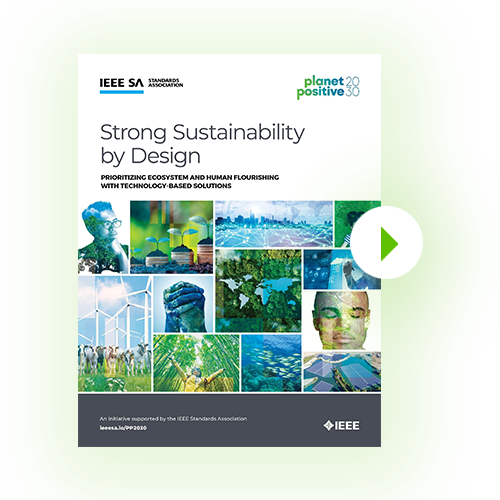As a continued way for readers / future Community Members to get to know more about our work, here’s Guy Hochstetler from the Rivers and Lakes Committee
Please list your name, title, and global region (city / state, country)
Guy Hochstetler, Retired IT Solution Architect, Greenville, SC, USA
How long have you been an IEEE member or volunteer?
First time volunteering with IEEE, since April 2022.
Why did you want to join Planet Positive 2030?
Although my career was in IT, my undergraduate degree is Forestry so I’ve a formal foundation and an awareness of ecology. Engaging with Planet Positive 2030 was an ideal transition for me away from technology more towards ecology, my passion in my younger years. This initiative also allows me to research and write, something I hoped to do after retiring.
How would you define “sustainability?” In general, in your work, and in your life?
Sustainability is about prolonging, prolonging life of any being towards reaching its potential while balancing against the limits of the natural and physical laws of this world. I explore this topic in a short blog post (2 min read).
How you think technology can best help the planet?
We first need to define what we mean by technology, it’s contextual. For example, for an IT person, many solution recommendations will be software based, e.g., AI, robotics, blockchain. For a watershed specialist, technology may be in the guise of a volunteer program designed to teach local motivated individuals how to monitor water conditions of a nearby river in designated spots where results are reported back to a central data repository. Answering the question from an IT perspective, technology can help best by educating and helping local communities make sustainable choices.
What is your boldest (yet technologically and scientifically based) hope for the work of Planet Positive 2030?
From an IT perspective, technology can help best by empowering communities to address their local environmental issues (existing or potential) by providing decision-making support. This could be in the form of big data paired with ethically employed AI that reveals all the species stakeholders and models the impact on them for different solution choices. The models would be ever-evolving and locally nuanced, devised with input contributions from the community (including indigenous societies). The models could be used by governments, businesses, education, and individual households as a learning tool, and as a means to evaluate community choices.
What is your dream regarding Planet Positive 2030 and the Earth in general?
To enlighten and motivate a broader audience to better understand the interconnectedness of all earth’s species. The more knowledgeable and motivated people we have engaged in sustainability initiatives, the richer the ideas, and the greater will be the inertia to make a difference. As it stands, we combat ourselves as humans, wasting energy pushing back against ideas due to mistrust. That happens especially where ideas spawn from non-local sources. We don’t like being told by “outsiders” what to do.



